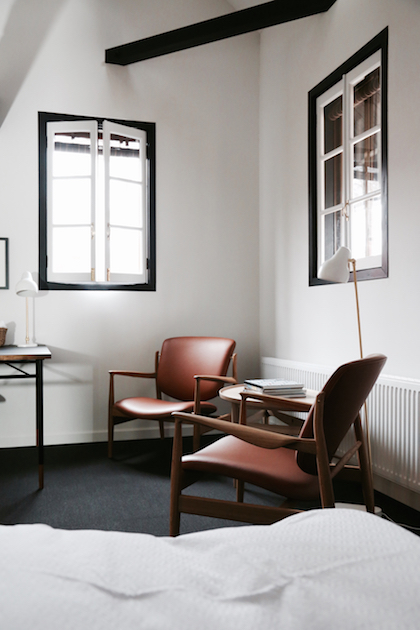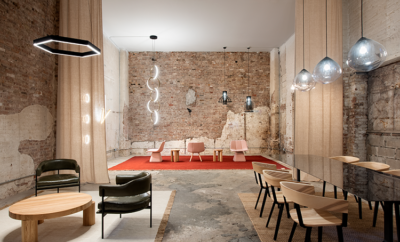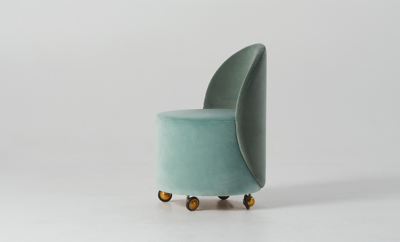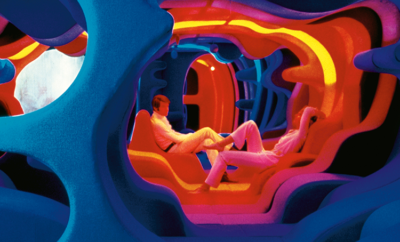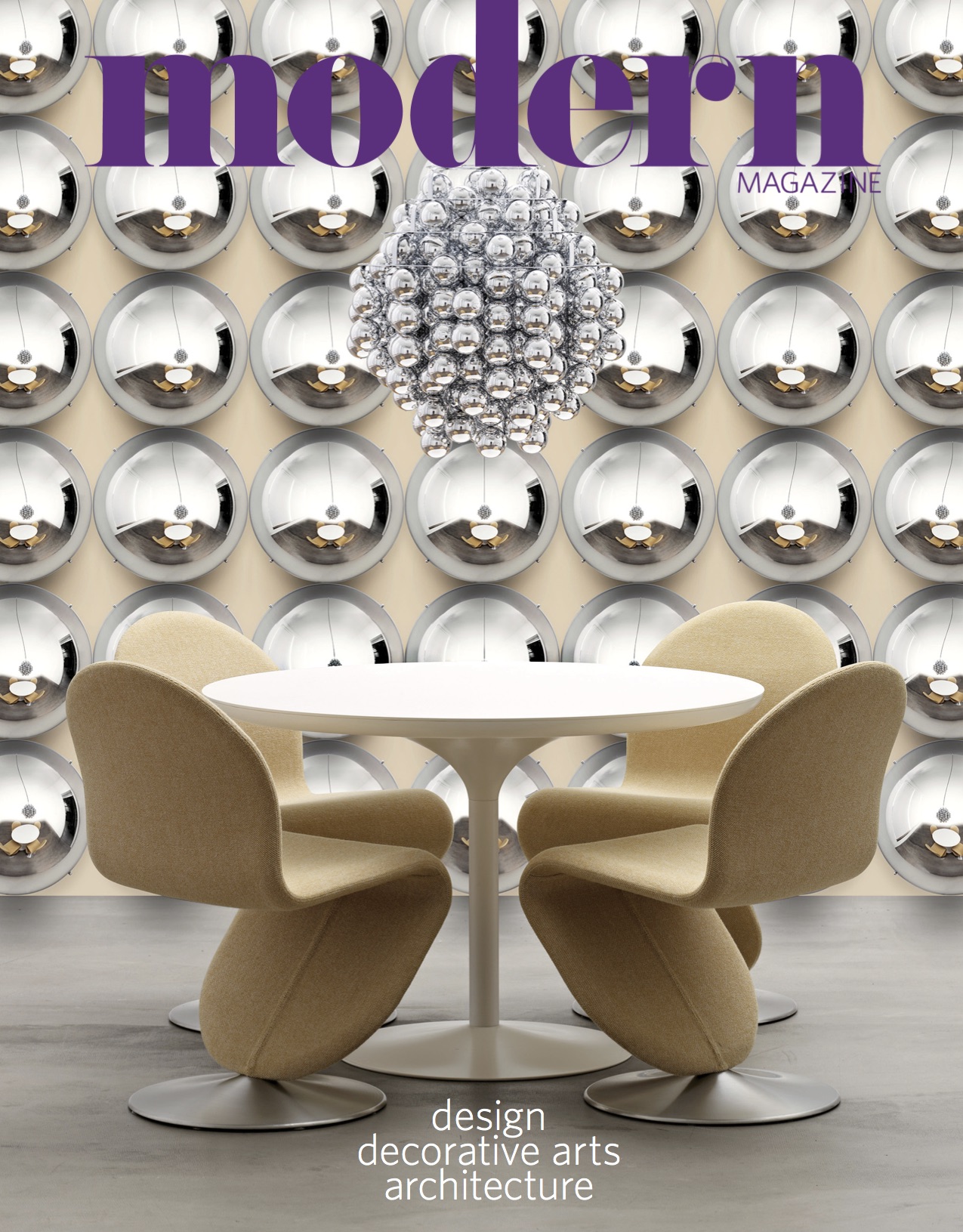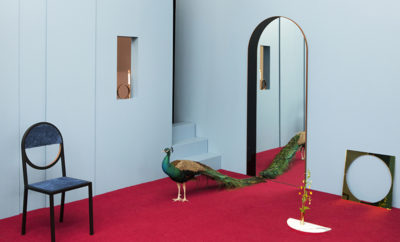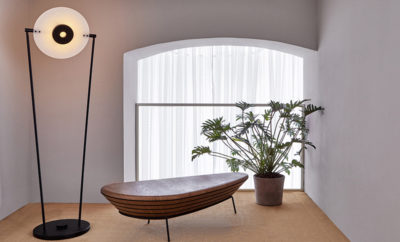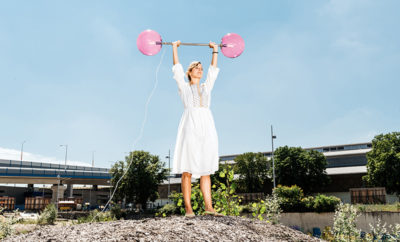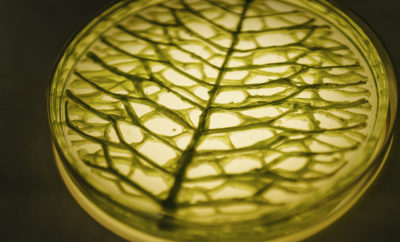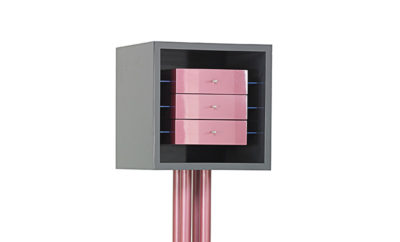 A showroom and lounge located in the hotel’s lower level features a selection of Juhl’s furniture, including a Baker sofa, 1951; Pelican chairs, 1940; and a Cocktail table, 1951. Except as noted, the lighting throughout the hotel was designed by Vilhelm Lauritzen, under whom Juhl worked when he was studying architecture.
A showroom and lounge located in the hotel’s lower level features a selection of Juhl’s furniture, including a Baker sofa, 1951; Pelican chairs, 1940; and a Cocktail table, 1951. Except as noted, the lighting throughout the hotel was designed by Vilhelm Lauritzen, under whom Juhl worked when he was studying architecture.
Design
Getting away from it all with Finn Juhl
Hygge—the oft-butchered Danish term for all things cozy—took a surprising place in the zeitgeist last year, sparking innumerable books, explanatory guides, and Pinterest boards. The word (pronounced “hoo-gah”) even scored a place on Oxford Dictionaries’ short list for the top words of 2016.
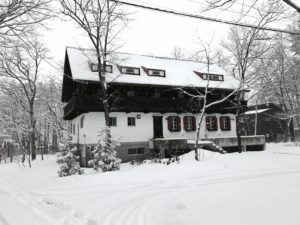
The House of Finn Juhl Hakuba is located in a small town in the Japanese Alps.
Lovers of Danish design, of course, have long been aware of the hygge-esque qualities ingrained in the region’s furnishings, a careful balance of comfort and rationality. The mid-century designer Finn Juhl mastered these forces with pieces that combined ease, functionality, and a touch of humor. Last winter, seeking to create an immersive, real-world manifestation of Juhl’s design ethos, the manufacturers of his furniture opened a retreat nestled in the mountains of Japan, outfitted entirely in the designer’s iconic work.
“You can experience Finn Juhl’s furniture not just by coming to a showroom, but by having a chance to live with it,” explains Hans Henrik Sørensen, co-owner of Onecollection, the furniture company that has the exclusive right to Juhl’s work.
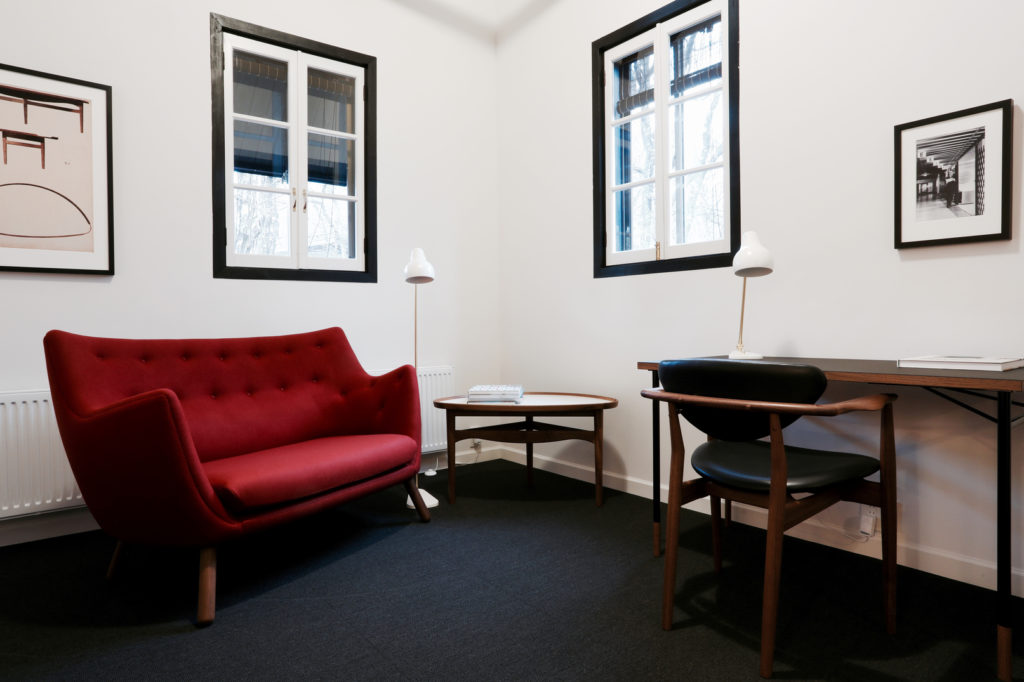
The Poet Room is outfitted with a Poet sofa, 1941; Eye table, 1948; Nyhavn desk, 1945; and 109 chair, 1946.
This isn’t the company’s first foray into the Asian market: the brand already has a showroom and gallery in Seoul, inspired by Juhl’s residence in Denmark. So why establish a hospitality venue, in particular, five thousand miles from Juhl’s home country? According to Sørensen, Japan has always maintained a keen interest in Juhl’s designs, even as it waned elsewhere during the 1970s and ‘80s. Juhl is not known to have visited the country himself, but was visited by Noritsugu Oda, a scholar and noted collector of Danish design. “In Japan people were collecting Finn Juhl’s furniture and they were writing about him,” says Sørensen. “He seems to have had a great impact on the Japanese people.”
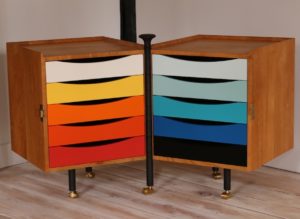
A Glove cabinet, 1961, nestled in
a corner of the hotel living room.
For the hotel, Onecollection wanted to marry the Juhl spirit with traditional Japanese aesthetics. Located in the idyllic alpine village of Hakuba, the hotel is housed within a quaint gable-roofed ’70s-era lodge. Sørensen, with the aid of Danish interiors firm Design Solutions, converted the building (a former inn) from ten guest rooms to six. Each room, named for and furnished in Juhl masterworks such as the Japan or Chieftain chairs, is spare yet elegant, featuring a contrasting palette of blond wood floors and brawny black timber beams.
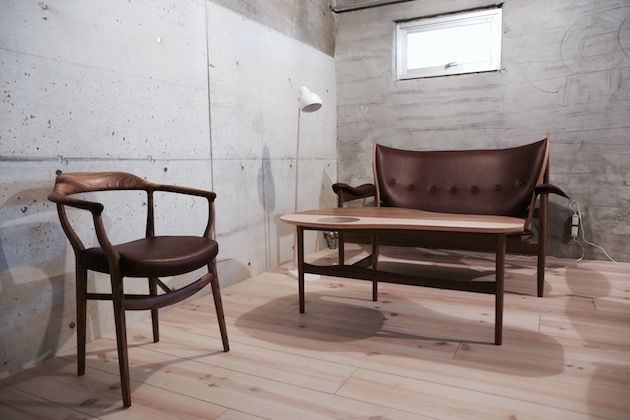
A view of the lower- level showroom and lounge, displaying
a 44 chair, 1944; Butterfly table, 1949; and Chieftain sofa, 1949.
Visitors seeking outdoorsy thrills can enjoy skiing, hiking, and rafting. Travelers in need of some R&R can luxuriate in the area’s famed hot springs, or enjoy complimentary wine in the warm embrace of a Juhl Pelican chair or Poet sofa (the one complaint from guests, Sørensen notes, is hangovers).
“We really want people to feel good,” he explains. “And that’s how you feel when you are seated in Finn Juhl’s furniture.”


